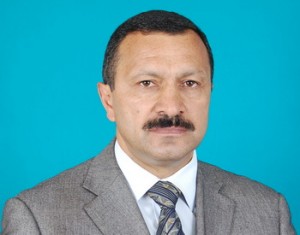
On January 14, a hearing was held on the case of Ismayilli prisoners in Shaki Court on Grave Crimes. Judge Rashid Huseynov presided over the hearing. Bashir Khalafov and Valeh Sultanzadeh, who are identified as the victims in the case file, testified. The Institute for Reporters’ Freedom and Safety (IRFS) was informed about this by Nemat Karimli, lawyer of the accused journalist Tofig Yagublu.
According to Karimli, Khalafov and Sultanzadeh have not incurred any financial or moral damage. Therefore, in fact they are witnesses. “Had they been involved as witnesses, they would not know each-other’s testimonies and what questions they were asked. Therefore, the prosecution deliberately involved them as victims to ensure their participation in all hearings, so that they hear each-others’ answers and give consistent testimonies” said Karimli.
According to the lawyer, at January 14 hearing in his testimony Bashir Khalafov refused from part of his earlier statement provided during the preliminary investigation and told the court that although he had seen Ilgar Mammadov and Tofig Yagublu inside the crowd, he did not see them make calls or cause any disturbance. “Being asked by the prosecutor and the judge about the reason of the contradiction between his two testimonies, Khalafov said what he had told during initial investigation was what he had heard, but what he now says is what he has seen himself. Thus, the policeman said he had not seen Mammadov and Yagublu doing illegal actions. The other victim, policeman Valeh Sultanzadeh said that although others were throwing stones, Mammadov and Yagublu did not do so. This is what Khalafov and Sultanzadeh said before the lunch break. However after the lunch the public prosecutor said he had a cross question for Bashir Khalafov and started to question him. This time Khalafov denied his own testimony provided before the break and confirmed his statement provided during the preliminary investigation. As an excuse for such a u-turn, Khalafov said he was nervous,” said the lawyer.
Karimli believes that the policeman was pressured during the lunch break to change his testimony. “Even before the break, despite of our objections, the judge and prosecutor repeatedly and insistently asked Khalafov, putting psychological pressure on him, why he was denying what he had told during the preliminary investigation.
At Wednesday’s hearing, on January 15, one more police officer and other victims were questioned. According to lawyer Nemat Karimli, while testifying the policeman Faraj Azizov denied his own statement provided during investigation. “In his earlier statement, the policeman alleged that Yagublu and Mammadov were provoking public disorder. But today Faraj Azizov said he had not seen the accused during Ismayilli events, as himself was not there at all. He said on January 24, 2013 he was in the Police Office and signed the statement without reading it, as he trusted the prosecutor. In response to persistent questions from the judge and prosecutor, Azizov said he cannot falsely blame anyone and refused to testify against the accused. The second policeman Elvin Nasirov said there was quietness until water cannons were used against the crowd which ignited the confrontation. The judge and public prosecutor objected and denied this, to which Nasirov responded saying ‘I am telling the truth.’ Also, the other men involved as victims said they had no demands against the defendants,” said the lawyer.
Background: Tofig Yagublu was arrested on 4 February 2013, for allegedly attempting to undermine stability in Ismayilli region by calling on the locals to resist the police and block the roads, during his visit to the region on January 24. He was eventually sentenced to two months of pretrial detention by Nasimi District Court on charges of “organizing public disorder” (Article 233 of the Criminal Code) and “resisting the representative of authorities or using violence against them” (Article 315 of the Criminal Code). Yagublu’s appeal against the decision was denied by the Baku Appeals Court on February 8. On April 27 one of the previous two charges filed against Yagublu, “organizing public disorder” (Article 233/Criminal Code), was replaced by that of “organizing or participating in mass disorders accompanied by violence, looting, arson, destruction of property, application of fire-arms or explosives, or armed resistance against representative of authority” (Article 220.1/Criminal Code) which carries a maximum of 12 years imprisonment. Yagublu is currently held at Baku detention center.

